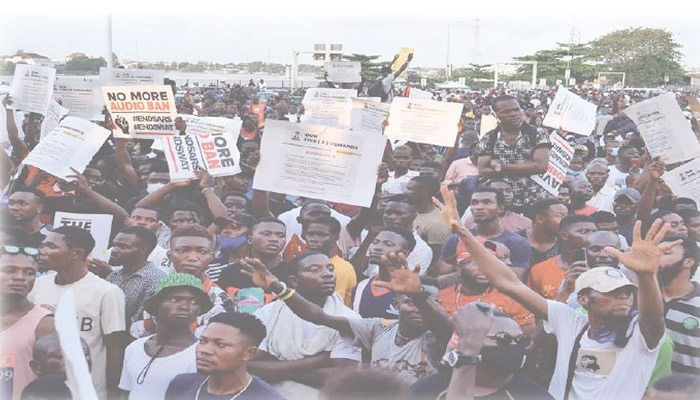
An explanation has been provided by the apex Igbo socio-cultural organization, Ohanaeze Ndigbo Youth Wing, regarding why Igbo youths will be abstaining from the upcoming nationwide protests scheduled from August 1 to 10, 2024.
Following an Emergency Convention of Igbo Youth Leaders and Stakeholders 2024 in Enugu, Ohanaeze highlighted the reasons behind the decision. The South East region faces significant challenges such as widespread economic hardship, high levels of youth unemployment, and limited representation in governance.
Acting National President, Chukwuma Okpalaezeukwu, stated that the Ohanaeze youths have decided to support the stance of their elders, opting not to partake in the protests. Instead, they plan to engage in constructive dialogues with the government to address the specific issues faced by the Igbo community.
After consulting with youths from across the region, the group chose to focus on engaging with the Federal Government and South East governors to tackle the unique challenges and work towards sustainable solutions.
The approach aims to foster collaboration rather than confrontation, seeking to achieve more effective and lasting outcomes for the region’s youth.
Okpalaezeukwu emphasized that while the hunger protest is a legitimate right within the constitution, given the current state of affairs in the country, there is a concern that it could lead to violence and property damage, as experienced during the Endsars protest in 2020.
He expressed the need for equitable representation, citing the imbalance in the number of states in the South East compared to other zones. There are also concerns about the unjust detention of Igbo individuals like Nnamdi Kanu.
Looking ahead, Okpalaezeukwu stressed the importance of meaningful dialogue to ensure that the voices of the Igbo community are heard and that fairness, equity, and inclusivity are upheld.
He lamented the potential threats faced by Igbo businesses and individuals in various cities, underscoring the desire to prevent loss of life and property destruction. The call for Igbo youths to be integrated into political positions was also reiterated.
The organization hopes that through continued constructive dialogue, the grievances of the South Easterners will be addressed, building on the progress made since the end of the civil war in the region.
